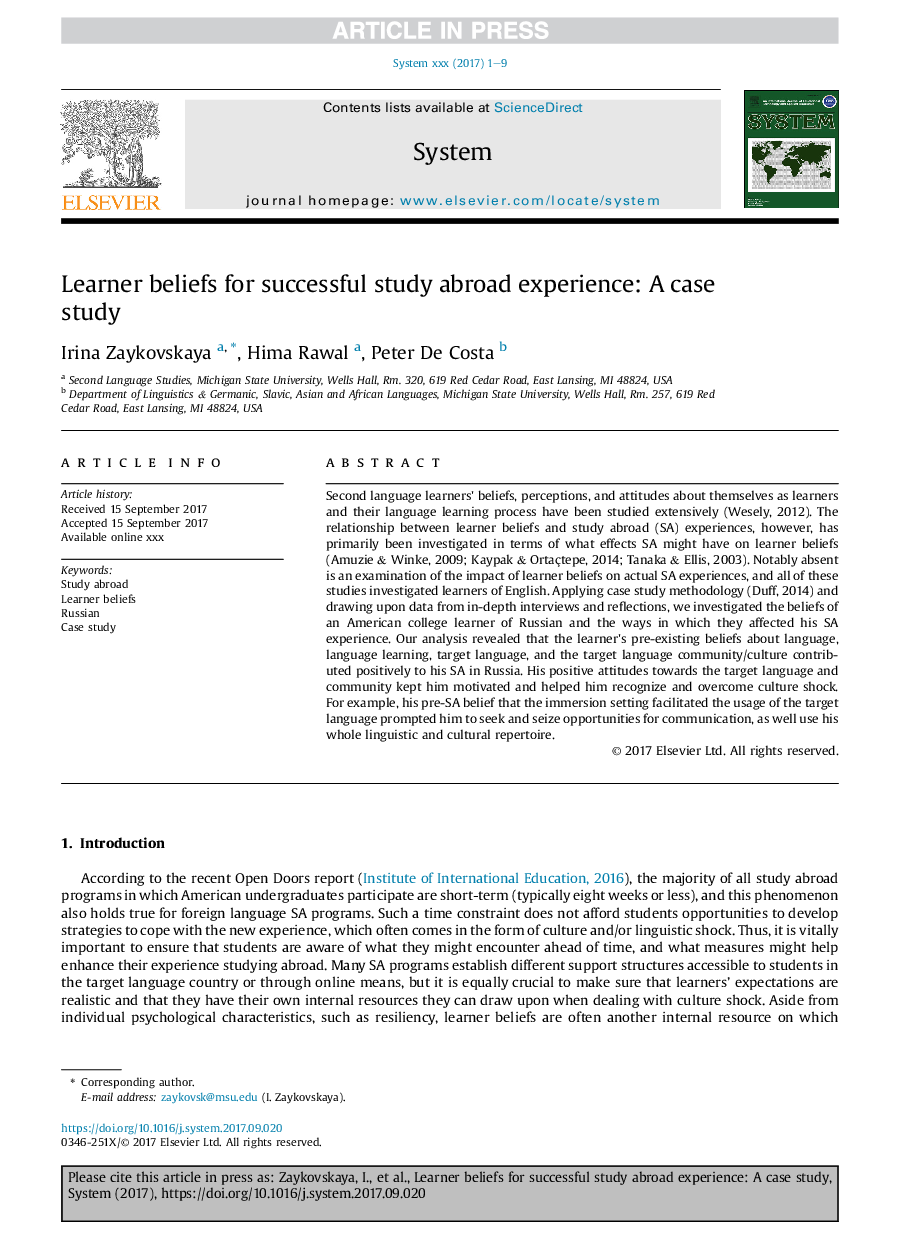| Article ID | Journal | Published Year | Pages | File Type |
|---|---|---|---|---|
| 6849495 | System | 2017 | 9 Pages |
Abstract
Second language learners' beliefs, perceptions, and attitudes about themselves as learners and their language learning process have been studied extensively (Wesely, 2012). The relationship between learner beliefs and study abroad (SA) experiences, however, has primarily been investigated in terms of what effects SA might have on learner beliefs (Amuzie & Winke, 2009; Kaypak & Ortaçtepe, 2014; Tanaka & Ellis, 2003). Notably absent is an examination of the impact of learner beliefs on actual SA experiences, and all of these studies investigated learners of English. Applying case study methodology (Duff, 2014) and drawing upon data from in-depth interviews and reflections, we investigated the beliefs of an American college learner of Russian and the ways in which they affected his SA experience. Our analysis revealed that the learner's pre-existing beliefs about language, language learning, target language, and the target language community/culture contributed positively to his SA in Russia. His positive attitudes towards the target language and community kept him motivated and helped him recognize and overcome culture shock. For example, his pre-SA belief that the immersion setting facilitated the usage of the target language prompted him to seek and seize opportunities for communication, as well use his whole linguistic and cultural repertoire.
Related Topics
Social Sciences and Humanities
Arts and Humanities
Language and Linguistics
Authors
Irina Zaykovskaya, Hima Rawal, Peter I. De Costa,
